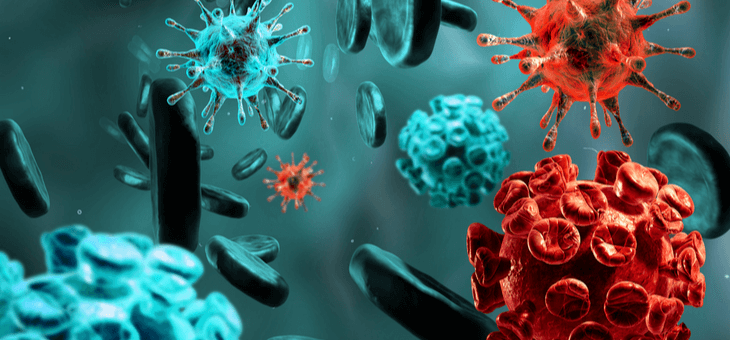The incidence of autoimmune disease is rising in countries where it was previously unknown, and the latest research indicates that western diets may be to blame.
As large fast-food franchises expand their empires into new countries, Western-style foods are becoming increasingly popular.
These foods offer convenience at an affordable price, but their high-fat, high-sugar make-up has the potential to cause long-term health issues such as obesity and diabetes. Being highly processed, the foods are low in dietary fibre, an important element in keeping the gut healthy.
Read: Will a plant-based diet help you live longer?
Professor Carola Vinuesa, an immunology expert at Australian National University (ANU), says there is a strong link between a healthy gut and a healthy immune system. A lack of fibre causes an alteration that “affects a person’s microbiome – the collection of micro-organisms that we have in our gut and which play a key role in controlling various bodily functions”.
She says: “These changes in our microbiomes are then triggering autoimmune diseases, of which more than 100 types have now been discovered.”
What are autoimmune diseases?
The federal government’s Health Direct website explains that autoimmune diseases occur when the immune system produces antibodies that attack the body’s own cells.
Our autoimmune systems are generally good at identifying ‘bad’ cells and producing antibodies to attack them, but an increasing number of people around the world have systems that are attacking ‘good’ cells, and diet seems to be a key factor. There are many types of autoimmune disease, with Coeliac disease, lupus and Crone’s disease among the more well known.
Are autoimmune diseases treatable?
As yet there are no known cures for autoimmune diseases, but work on finding one continues apace around the world. Prof. Vinuesa and others are focusing research on the role genetics play in triggering autoimmune disease.
Read: Diet trumps drugs when it comes to anti-ageing measures
Like many other diseases, autoimmune disease will affect some who have a highly processed Western diet, while others whose diets are the same remain unaffected. Prof. Vinuesa says: “If you don’t have a certain genetic susceptibility, you won’t necessarily get an autoimmune disease, no matter how many Big Macs you eat.”
How can you reduce the risk of contracting an autoimmune disease?
The evidence for a link between autoimmune disease and an unhealthy gut microbiome is growing. In some who have had serious disease associated with ‘gut dysbiosis’, faecal transplants have been shown to successfully improve their gut microbiome.
As the name suggests, a faecal transplant, technically known as a faecal microbiota transplantation (FMT), is the transfer of human faeces from a healthy donor to a recipient with the disease.
But there are more palatable methods of keeping your microbiome healthy. In a recent episode of the Dr Karl Kruszelnicki’s podcast Shirtloads of Science, Clare Collins, professor of nutrition and dietetics in the school of health sciences at the University of Newcastle, explained that food groups known as prebiotics and probiotics are the keys to a healthy gut.
Read: Can you still get heart disease if you are fit?
Probiotics found in some yoghurts, are ‘healthy’ bacteria that keep your gut in good shape. Probiotics feed on prebiotics. Prebiotic foods contain complex carbohydrates that can’t be digested and dietary fibres that resist digestive processes in the stomach and small intestine. They pass undigested into the large bowel where they are fermented by the healthy ‘good’ bacteria.
The good news is that prebiotics are found in many common foods. Unsurprisingly, those foods are the ones most of us would describe as healthy: grains such as barley and rye bread; legumes such as chickpeas, lentils and red kidney beans; vegetables, including artichokes, asparagus and beetroot; fruit (nectarines, white peaches and watermelon); and nuts such as cashews and pistachios.
While researchers around the world continue to look for the causes and a cure for autoimmune diseases, your best defence remains a healthy diet.
Do you suffer from an autoimmune disease? Does your diet include probiotics? Why not share your experience in the comments section below?
If you enjoy our content, don’t keep it to yourself. Share our free eNews with your friends and encourage them to sign up.

